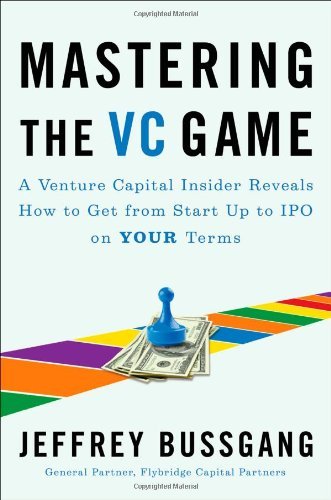What do you think?
Rate this book


256 pages, Hardcover
First published April 29, 2010
In the jungle, the entrepreneurs have no set path to follow and must hack at the foliage to get from point A to point B, diving into different parts of the jungle with reckless abandon. No one has been there before them and they simply have to make it up as they go along. There are some casualties along the way but the determined entrepreneurs change direction, adjust plans, and figure out a way to get out of the jungle. While in this stage of their growth, the entrepreneur's metric for success is how much "buzz" or positive word of mouth they can generate about the company.
Once they are out of the jungle the entrepreneur finds the dirt road. At this stage, they are shipping product, generating revenue, and have a clear sense of strategic direction. Their goal is to begin to increase their momentum along their chosen path. There may be a few twists and turns and plenty of bumps, but it's not nearly as chaotic as things were in the jungle - target customers are established, competitors are well known and understood, and fewer surprises intrude on their progress. At this stage, the success metric for the company is revenue growth. The absolute revenue number matters less than the ongoing growth. The more promotionally minded entrepreneurs will refer to that growth in every conversation possible.
After reaching the end of the dirt road, the entrepreneur discovers the highway. Suddenly, the company is no longer entrepreneurial. You're charging ahead with such a speed that you have less room or ability to maneuver. You pray you don't slam into a wall (i.e. run out of cash) but instead continue to progress on a smooth path to an IPO. To succeed at this the company needs to be profitable, and so now the entrepreneur cites cash flow figures than describing the arc of revenue growth. (147).
1. Do you still love running the business? Does it feel like you can't imagine doing anything else with your life? Do you still feel like you have something to prove or do you feel tired and worn out?
2. Do you still believe passionately in the business's potential? Does it appear that the major proof points are still ahead of the company?
3. How much is the offer as compared to what it might be a year or two from now if the company were to successfully execute on its plan and hit its numbers? What might the company's value be in a year or two if it falls short of its plan by 30% How would you assess the probability of either path and then calculate the expected value of holding on for a few more years as compared to taking the money off the table by selling now?
4. Does the business require more capital and, if so, can that additional capital be raised easily at a reasonable (and therefore not too dilutive) price?
5. Do the people around you (your management team, your VCs, your family) want . you to sell out or are they encouraging you to keep going?